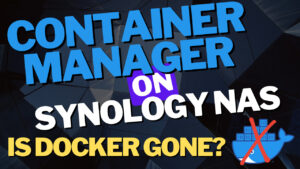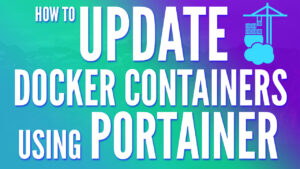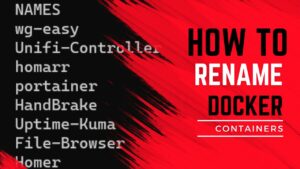In this article, we’ll look at the 5 best Docker alternatives you can use. While Docker is a great platform with tons of support in the form of different containers and overall community support, there are other options that exist that should be tried when looking at different containerization options.
5 Best Docker Alternatives You Should Consider
Before we look at some of the best Docker alternatives you can use, let’s take a look at exactly what Docker is.
What is Docker?
Docker is a platform that assists in creating, deploying, and running applications in a containerized way. Due to the way Docker containers are configured, they are deployed with everything they need to operate, meaning that you can move them to a separate device (even with a different operating system) and they will continue functioning as expected.
This is a huge benefit of Docker, as you’re not limited to an individual set of hardware like you are with other solutions. Not only that, but there are a ton of different images that you can run, with a lot of support online in the form of questions, articles, or tutorials, due to how popular Docker is.
The screenshot below is Portainer – my favorite tool for managing Docker containers.
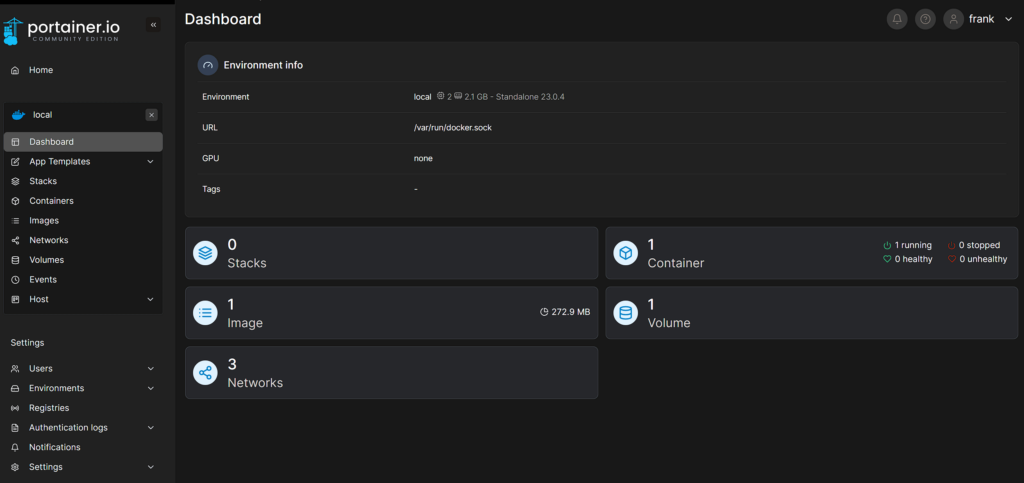
Why Consider a Docker Alternative?
While Docker is arguably the most popular platform when it comes to Container setup and management, there are other solutions that may work best depending on the requirements you have.
For example, Docker’s reliance on a central daemon for managing containers can sometimes be a bottleneck, especially in a multi-tenant environment. Also, Docker’s security has often been a point of concern, especially when containers need to run with root privileges.
None of this is to say that Docker is bad, because it’s one of my favorite platforms, but there are other alternatives that users can consider if they’d like to try something new.
Podman: True Docker Alternative
The first Docker alternative is Podman, a solution that can be installed on various different platforms including Linux, Windows, and macOS. Often seen as a direct alternative to Docker, Podman provides similar features to Docker, while addressing some of its shortcomings.
Arguably the most beneficial difference between Docker and Podman is that Podman runs Containers independently from a central daemon, which means Podman is more secure. In layman’s terms, Podman is designed to run Containers as individual users as opposed to a daemon (or root), increasing the overall security of the platform.
An interesting thing about Podman is that while it can be installed on Windows or macOS, it’s still technically running on Linux, which gives a universal approach to its execution of containers.
Podman also uses a subset of Docker’s command-line options, making it an easy transition for users comfortable with Docker.
Containerd: Low-Level Docker Alternative
The next Docker alternative that we’re going to look at is Containerd. Containerd is a container runtime. It’s responsible for executing containers and managing container images on a node.
Containerd is designed to provide a runtime for Docker and Kubernetes, handling core container execution and supervision, and providing advanced features such as storage and network interface management.
Containerd has evolved to become a top project under the Cloud Native Computing Foundation. It provides a straightforward way to manage containers and images without dealing with higher-level Docker components.
As you can see in the screenshot below, Containerd works with various types of tools and services.
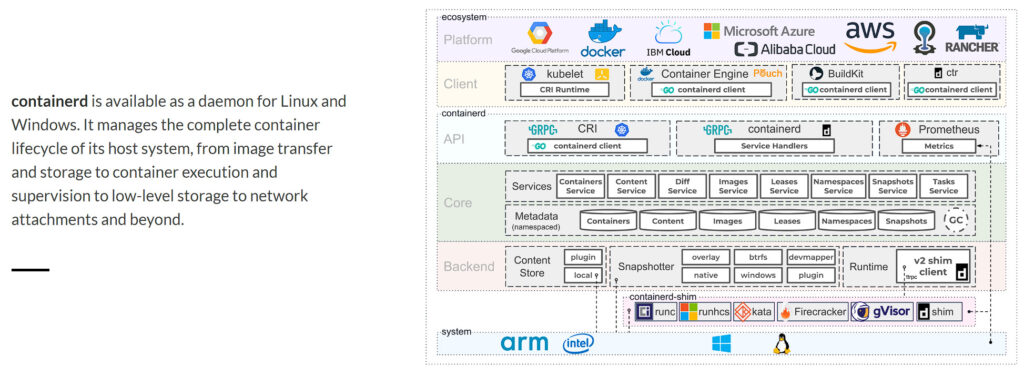
RunC: Docker Alternative
RunC is a lightweight and portable container runtime that serves as the underlying engine for creating and running different types of containers.
RunC implements container functionality according to the Open Container Initiative (OCI) specifications, a set of industry standards aimed at ensuring consistency and interoperability between different container technologies.
Ultimately, RunC is a lightweight option for running different types of containers but is command-line based and lacks some of the high-level platform options that Docker provides users with.
LXC: Linux Containers
LXC Containers (Linux Containers) are the most interesting option on this list. An LXC Container is an operating system-level virtualization method for running multiple isolated Linux systems (containers) on a single control host.
LXC containers can be considered lightweight virtual machines, providing most of the isolation of VMs but with less overhead since it doesn’t need to emulate hardware and generally shares host resources.
LXC Containers can be used for various things (like Pi-hole, or to even to run Docker) and provide users with a ton of flexibility. My favorite platform for running LXC Containers is Proxmox.
Kubernetes
To be clear, Kubernetes is not a direct Docker alternative, but it is a container orchestration platform that allows you to manage different runtimes (one being Docker).
Kubernetes provides cluster management and scaling opportunities, which makes it a great alternative for large-scale container deployments. This means that you can deploy and manage containers across a cluster of machines, which provides strong benefits such as high availability and fault tolerance.
Docker Desktop Alternatives
Docker Desktop gives users a great tool for managing containers, images, volumes, and more on Windows, macOS, or Linux.
If you’re using Docker Desktop and you’re interested in alternatives, check out Podman above. It’s a great alternative that will provide a similar user experience and as mentioned above, shares certain functionality with Dockers CLI.
Which Docker Alternative is Best?
It’s extremely difficult to give an alternative that is best. Mainly because the requirements that exist will ultimately determine which option should be used.
However, in my opinion, Podman is the best Docker alternative. Podman will be familiar to users comfortable with Dockers CLI, provides enhanced security, and has a great GUI option that’s easy to work with.
Conclusion: Docker is Still a Great Option
While we looked at the top alternatives to Docker, Docker remains king in a lot of people’s minds and still has a significant place in the container world. I’d shy away from completely replacing Docker if you’re considering it. Simply looking at the Docker registry options alone will give you a bunch of different ideas of different types of containers you can run.
When looking at the entire Docker ecosystem, it’s an excellent tool with tons of support and a great community. While the tools above are great, you’ll be hard-pressed to fully replace Docker with any of them.
Thanks for checking out the article on the best Docker alternatives. If you have any questions on Docker alternatives, please leave them in the comments!

